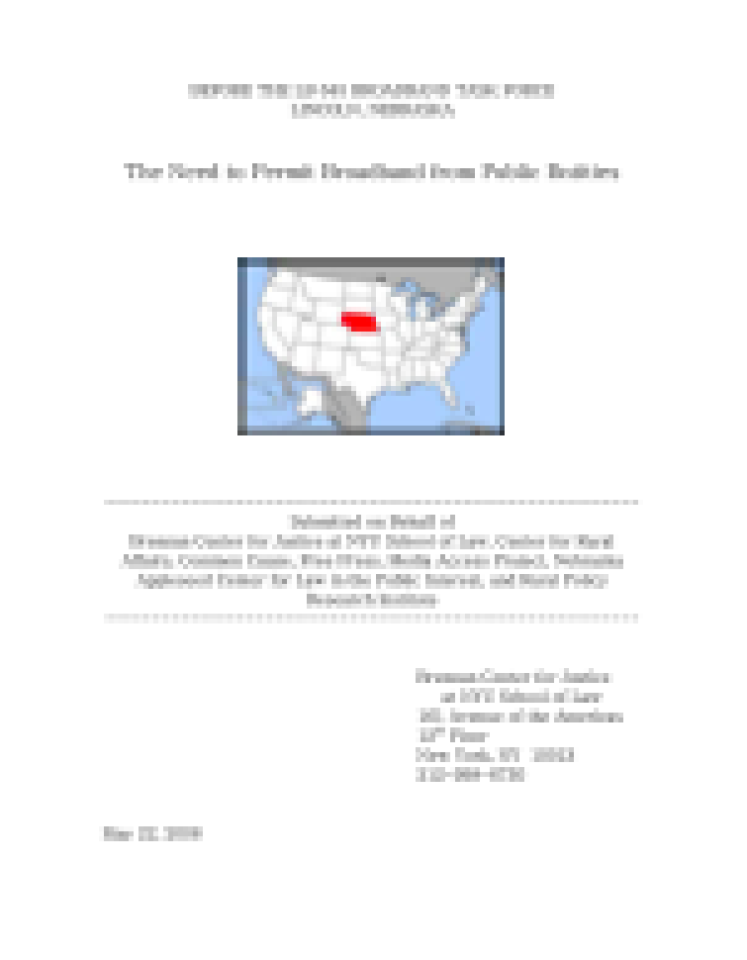Date
Image

This report was written by Ciara Torres-Spelliscy, Esq. and Marjorie Heins, Esq. of the Brennan Center for Justice at NYU School of Law to inform a Nebraska Task Force tasked with evaluating a ban on municipally owned broadband networks throughout the state of Nebraska. Unfortunately, the Task Force was stacked with proponents for privately owned networks and seemed unable to consider any other viewpoints (more details here). From the Executive Summary:
While the provision of broadband service by public entities is a contentious topic, there have been no comprehensive studies of municipal broadband service providers that would provide easy answers to policy makers. Instead researchers have considered single cities or one type of provider. There are several reasons for the dearth of comprehensive studies. One is that the technologies involved are so new. Another is that indispensable data sets are often proprietary, confidential or nonexistent. To aid the Task Force in its duties, we have gathered information from the publicly available sources. To supplement these data sets, the Brennan Center distributed a questionnaire (the “Brennan Center Questionnaire”) to the Nebraskan members of the Center for Rural Affairs and Common Cause to gather information about the challenges experienced by Nebraskan Internet users. ... In Part I of this white paper, we will explore the status of broadband deployment both nationally and in Nebraska. We have found that some Nebraskans lack access to broadband providers and others live in areas where there is unaffordable broadband service. A significant minority (43% living outside of towns in 20054 and 7.4% of Nebraskan towns in 2006 according to the Nebraska Telecommunications Association) lacked access to broadband service. These numbers most likely understate the magnitude of the problem because of the reporting methodologies used. Around half of Nebraska’s towns are only served by a monopoly wired broadband provider who can charge high prices for broadband service. The data also demonstrate that rural Nebraskans in particular are more frequently priced out of the broadband market than their urban counterparts. Those living in small Nebraskan towns and in the countryside, and even many living just outside larger Nebraskan cities are faced with unaffordable broadband service. The advent of satellite Internet service has not solved the problems of access or affordability in rural Nebraska. Even though theoretically any Nebraskan with a view of the southern sky could subscribe to satellite Internet service, in reality, satellite dealers in Nebraska who sell and install dishes are not ubiquitous. And in the limited spots where satellite dishes are available, the equipment and the monthly service costs are high. In Part II, we will explore the arguments for and against municipal broadband. Opponents of municipal broadband argue, among other points, that it is unfair for private providers to compete in a market against a sovereign government. Supporters of municipal broadband argue that the private market has failed to provide universal, affordable broadband access and that local public entities can play a vital role in providing this service to local communities. Much of the research on the pros and cons of municipal broadband has focused on the role that public power providers can play in this market because they have been at the vanguard of installing wired broadband networks.

